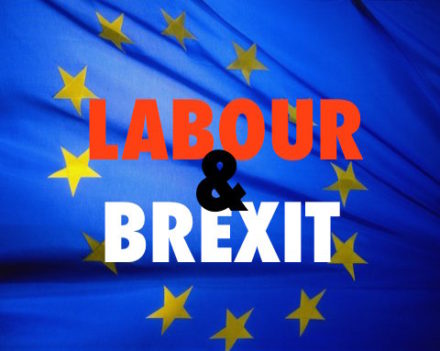
The decision by the British people in the referendum to leave the European Union represents a seismic shift in British politics and our place in the world. The consequences will reverberate for years to come and extricating the UK from an economic and social partnership spanning decades will not be quick or easy, it will be complicated and lengthy.
Labour must have a strong voice in the negotiations and respect the mandate of the British people. Our priority must be to do everything possible to secure the best deal for our communities, hold the Government to account, and mitigate the economic impact on those on low and middle incomes.
Not everyone drew that conclusion after the vote. Some called for article 50 to be triggered immediately and others demanded that Parliament should overturn the result. I don’t believe that this is the right approach. I am a passionate pro-European and I campaigned for a remain vote. Leaving the EU is a bitter pill for any pro-European to swallow, but as democrats we have a moral duty to respect the result of the referendum. It would be wrong to ignore it and would further corrode the trust that Labour has already lost with many working-class voters.
So if the real challenge is to accept the mandate and to get the best deal for our communities, what should our approach be? We must start by being clear about the process.
Some politicians and commentators see this as a one-stage process. If only it were that simple. In reality, there will probably be three stages.
First, triggering article 50 will start the formal two-year process of withdrawal. This shouldn’t just be a decision for the Government, Parliament should have a say. It would be logical for sovereignty-obsessed Eurosceptics, who argued for the supremacy of parliament, to take the same view. But they appear to be arguing against parliamentary scrutiny.
Second, there is likely to be a transitional arrangement. Some have suggested that we fall back on a Norway-style arrangement (EEA membership) but this would involve the free movement of people and would be unacceptable to many who voted leave.
Third, the negotiation of a trade agreement will follow a more complicated decision-making procedure. If it is a wide-ranging agreement, national parliaments of the EU 27 will have to ratify it. It is highly likely that this process will take longer than two years, even if it takes place alongside the article 50 negotiation.
The complex nature of the third stage seems to have been lost on the new international trade secretary, Liam Fox. When he promised that the UK would withdraw from the customs union, the prime minister overruled him. Until there is clarity about whether we will continue to share a common external tariff with the EU, striking trade deals will be off the table.
Labour must have a strong voice at every stage of the negotiations, it shouldn’t just be left to Tory ministers. Britain’s negotiating strategy should not be based on the tax-cutting, anti-workers’ rights approach of Conservative Eurosceptics; the concerns of working people must be put front and centre.
For Labour MPs who were speaking to working class voters the result of the referendum was not surprising. My constituents voted overwhelmingly for leave, their principal reason was immigration. According to polling referred to in the Fabian pamphlet, concerns about the level of immigration are not confined to those who voted leave. Remain voters also express the same sentiment. It is a 75 per cent view, not a minority view.
For many voters, this was compounded by a sense that globalisation and the economy overall is not working for them. Insecurity at work and pay restraint in the public sector led to a hankering to wind the clock back prior to joining the European Community; an era of well-paid, secure jobs.
Labour should seek to protect the progressive aspects of our membership such as the legislation which protects workers’ rights and the environment. However, it is my view that no deal can retain free movement of people. We must argue for restrictions while getting the best possible economic deal, including membership of the single market.
The process of leaving the EU and negotiating a deal might go well beyond 2020. The Labour party must have a clear strategy to influence the entire process. Our focus must be to secure the best possible deal and to push the government to allow scrutiny of their plans at every stage; especially when it comes to triggering article 50 – not to block the process but to shape the government’s position. More broadly, our priority should be to transform the economy into a high-skill, high-wage economy, with an active state and strong social security. This is our task and for the sake of our communities Labour must rise to the challenge.
This article is based on a chapter written by Emma Reynolds, MP for Wolverhampton North East, for the Fabian Society collection Facing the Unknown: Building a progressive response to Brexit, which is published today.




More from LabourList
‘I spent years telling workers the law couldn’t help them – that has changed’
Josh Simons resigns as Cabinet Office minister amid investigation
‘After years of cuts, Labour’s local government settlement begins to put things right’